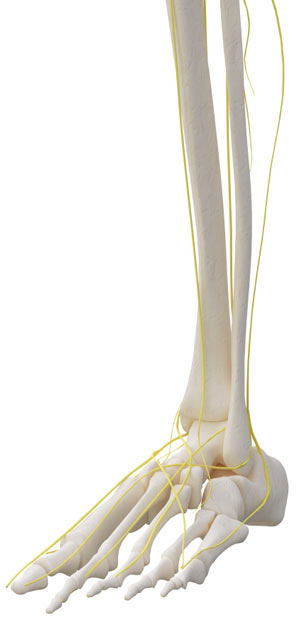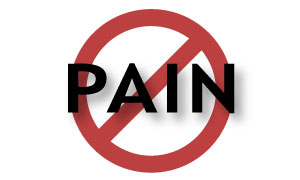Help for Peripheral Neuropathy

If you suffer from burning, pain, numbness or itching in your legs and feet caused by peripheral neuropathy, there's good evidence that alpha lipoic acid could ease your symptoms. (iii.20, 76, 82)
Although alpha lipoic acid isn't effective for all patients, clinical studies show that in those who do respond it can typically reduce symptoms by one or more grade within a month. In fact, experts have graded alpha lipoic acid with the highest grade for evidence of benefit (Level I), based on a systematic review of more than one randomized, controlled clinical trials. (iii.30, 76, 80)
Causes of Peripheral Neuropathy
Peripheral neuropathies occur when nerves are damaged and fail to work properly. The job of nerve cells is to send and receive electrical signals along nerve fibers which our brains translate into our senses (touch, smell, vision, etc.). Deformed nerve endings can change the membrane potential (difference in electrical charge, between the inside and outside of cells). This affects the way nerves normally behave. For example, excessive discharge of electrical signals causes pain. (iii.81, 83)
But what damages the nerves in the first place? Nerve damage that results in peripheral neuropathy can be caused by a number of factors, including nutritional deficiencies. Some sources of neuropathy include: (iii.76, 80, 82, 84)
| Cause | Type of Neuropathy Caused |
|---|---|
|
Diabetic neuropathy (both peripheral and autonomic). (iii.19, 76) |
|
|
Chemotherapy-induced peripheral neuropathy and polyneuropathy. Chemo types most commonly associated with neuropathy include: (iii.78, 80)
|
|
|
Median Nerve Compression |
Carpal tunnel syndrome is the most common peripheral neuropathy. Typical symptoms are pain and odd sensations (such as numbness and/or tingling). Conventional treatment includes drugs (e.g., steroids or NSAIDs), physical treatments (e.g., acupuncture, braces, laser, or yoga), and surgery for severe cases. (iii.7) |
|
Herniated Disc |
Sciatica is a peripheral neuropathy that causes shooting pain, weakness, tingling in the legs. It's caused by the spinal disc compressing the sciatica nerve. (iii.20) |
|
Monoclonal Gammopathy of Undetermined Significance (MGUS) |
Some studies suggest people with this B-cell disorder may be at higher risk for peripheral neuropathy. (iii.85) |
|
Alcoholism (long term) |
Alcoholic peripheral neuropathy usually occurs in feet and legs with symptoms of painful burning sensations. Can be severe. (iii.86) |

How Can Alpha Lipoic Acid Help? Evidence of Benefit
Research shows that alpha lipoic acid has a number of beneficial effects that can help prevent and even repair nerve damage. These include: (iii.19, 87-88)
- Boosting the body's natural antioxidant levels and performance.
- Chelating excess metals that are toxic and produce free radicals.
- Helps regulate blood sugar levels.
- Protects cells against toxins.
- Quenching free radicals.
- Reducing oxidative stress.
All of the above helps improve blood flow and nerve conduction. (iii.19)

In Germany, alpha lipoic acid has been successfully used for over 60 years to treat peripheral neuropathy. Clinical trials worldwide have shown that injection and oral supplements of alpha lipoic acid can reduce the severity of neuropathy symptoms. Alpha lipoic acid also improves impaired nerve function. (iii.19-20, 78, 80, 85, 87-88)
How to Take Alpha Lipoic Acid for Peripheral Neuropathy
In most of the successful clinical trials using alpha lipoic acid for neuropathy injections were used. In patients with cancer it's given often first by i.v. and then orally following chemotherapy. However, alpha lipoic acid injections are currently not available in the United States, even by prescription. As an alternative, doctors who practice integrative medicine recommend taking 600-1800 mg/day of good-quality alpha lipoic acid supplements. Begin with one capsule at the lower dose and increase if needed. If taking higher doses, be sure to not take all at once but at equal intervals throughout the day. (iii.19)


